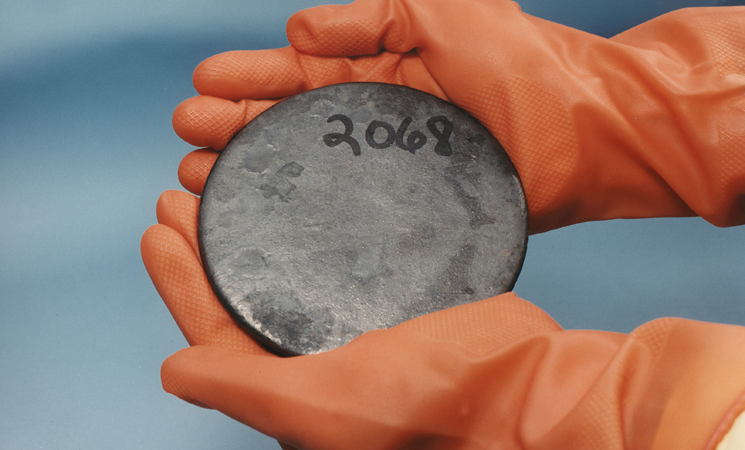Uranium 241
26-08-2023
11:47 AM
1 min read

Overview:
Recently, physicists in Japan while studying the atoms of heavy elements discovered a previously unknown isotope of uranium uranium-241.
About Uranium 241:
- It has an atomic number of 92 and a mass number of 241.
- The researchers also calculated that uranium-241 likely has a half-life of just 40 minutes.

How was uranium-241 found?
- The researchers accelerated uranium-238 nuclei into plutonium-198 nuclei at the KEK Isotope Separation System (KISS).
- In a process called multinucleon transfer, the two isotopes exchange protons and neutrons. The resulting nuclear fragments contained different isotopes.
Key facts about the Uranium
- It was discovered in 1789 by Martin Klaproth, a German chemist.
- It is a silvery-white metallic chemical element in the periodic table, with atomic number 92.
- It has the highest atomic weight of all naturally occurring elements.
- It occurs naturally in low concentrations in soil, rock and water, and is commercially extracted from uranium-bearing minerals such as uraninite.
- Uranium ore can be mined from open pits or underground excavations.
- The ore can then be crushed and treated at a mill to separate the valuable uranium from the ore.
- Uranium may also be dissolved directly from the ore deposits in the ground (in-situ leaching) and pumped to the surface.
Q1) What is an isotope?
An isotope is a variant of an element that has the same number of protons in its atomic nucleus but a different number of neutrons.
Source: In pursuit of a ‘magic number’, physicists discover new uranium isotope
